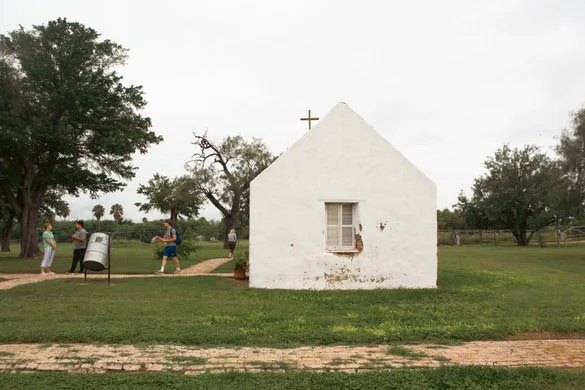There Goes the Neighborhood: How Communities Overcome Prejudice and Meet the Challenge of American Immigration
Ali Noorani, the son of Pakistani immigrants and a self-proclaimed “dyed in the wool liberal,” refuses to stereotype and write off conservatives. He does not indulge in knee-jerk accusations of racism and bigotry against conservatives who are concerned about immigration (this shuts down conversation instead of encouraging it!).
Instead, in his book, There Goes the Neighborhood: How Communities Overcome Prejudice and Meet the Challenge of American Immigration he takes readers on a vividly recounted cross-country road trip, visiting multiple cities in South and Midwest to speak with people (many of whom identify as conservative) who are connected with some aspect of immigration issues in their communities.
Noorani’s conversations with dozens of interviewees form the powerfully personal backbone of the book and are supplemented by an impressive amount of relevant statistical research and orienting historical background presented in an accessible way.
Noorani believes—and corroborates his belief through dozens of interviews with like-minded Americans—that there is a third way that refuses the grenade-lobbing “trench warfare” tactics of both the hard-left and the hard-right and instead focuses on “stepping towards one another” for “constructive public debate” focused on practical solutions to immigration issues which move us collectively forward as a nation.
America is experiencing an identity crisis due to quickly changing demographics. This is undeniable. But Noorani also reminds readers that this has been our history from the beginning—new immigrants coming, struggling to be accepted, and finally becoming an unquestioned part of us.
He also brings up a helpful point that I think is under-discussed: “With or without new immigration, American is changing it and it will take a cultural strategy to navigate our future” (emphasis mine). Instead of merely focusing on the wall vs. no wall debate, we should recognize that immigration is a multifaceted societal issue that must be addressed beyond quick fixes.
What is this cultural strategy Noorani is advocating for?
It begins by seeing “immigrants as people to be valued, not as policy points to be argued.”
It also includes viewing the economy not as a “zero sum game” but as a system which could potentially work to the mutual flourishing of more than one group at a time.
And it is kept authentic by remaining “true to [our own] values” and ideologies so that “credibility is maintained,” while still “nurturing dialogue and relationships” with those who think differently than us.
This centered yet open approach is key if we are to move beyond the wheel-spinning gridlock where we currently find ourselves as a nation and instead pull together towards solutions which upbuild both those who have lived in America for generations as well as those who are newcomers.
I recommend There Goes the Neighborhood for those looking for hope through the polarized chaos of our current political moment. Travel around the country with Noorani through the pages of this book and be encouraged that there are many people of various backgrounds and ideologies who are constructively working in their communities to create environments where both locals and immigrants can prosper.
Buy your copy of There Goes the Neighborhood: How Communities Overcome Prejudice and Meet the Challenge of American Immigration here!
ABOUT THE AUTHOR:
Jessica Udall writes on crossing cultures and following Jesus beyond polarized rhetoric and into street-level everyday love for those who are different. She is married to a wonderful Ethiopian man and has two children. Her favorites include having conversations with interesting people and drinking strong Ethiopian coffee, preferably at the same time. Jessica is a regular contributor to the Border Perspective Blog.













